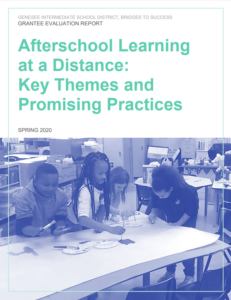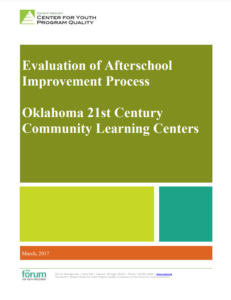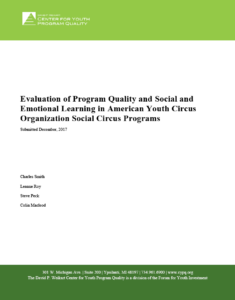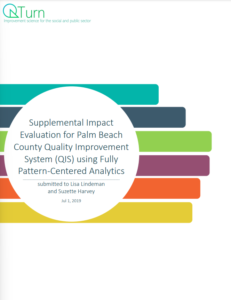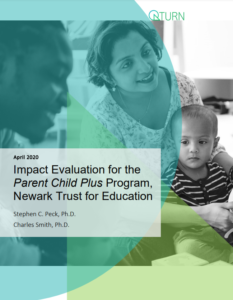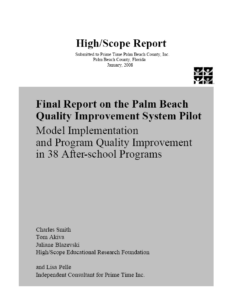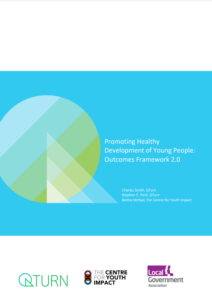Publications by type Client Report
Back to Publications
This report describes the experiences and practices of Genesee Intermediate School District: Bridges to Success (GISD) Team Leads and direct staff serving children and families after substantially redesigning afterschool programming due to the COVID-19 crisis.
This paper describes validity of QIS performance measures and longitudinal change over four years in Oklahoma 21st CCLC programs.
This report exemplifies use of the suite of SEL measures and benchmarks in the American Youth Circus Organizations network.
We sought to answer two specific questions about implementation and children’s SEL skill growth: What is the impact of QIS exposure on program quality (i.e., best practices, low staff turnover, great content), particularly for programs that have lower program quality at baseline? What is the impact of exposure to high program quality on student SEL skills?
The Quality-Impact-Equity Design and Methods (QDM) Toolbox was used to: (a) reconfigure existing measures for Parenting Practice Quality and Child SEL Skill to maximize reliability and validity for measuring socio-emotional skills and learning (SEL); (b) produce holistic profiles of parent and child skill at each timepoint; and (c) apply pattern-centered analytics to estimate impact and equity effects of the PC+
program as implemented in Newark.
A presentation of baseline and post-pilot program quality ratings for 38 after school programs participating in a pilot quality improvement system in Palm Beach County, Florida.
In the summer of 2018, the Local Government Association (LGA) in England commissioned the Centre for Youth Impact to produce an outcomes framework to help partners across the English youth sector to develop and agree on mutual aims to support young people in their local areas. The work was in response to LGA’s consultations that led to its vision statement described in the report, Bright Futures: Our Vision for Youth Services, published at the end of 2017.
